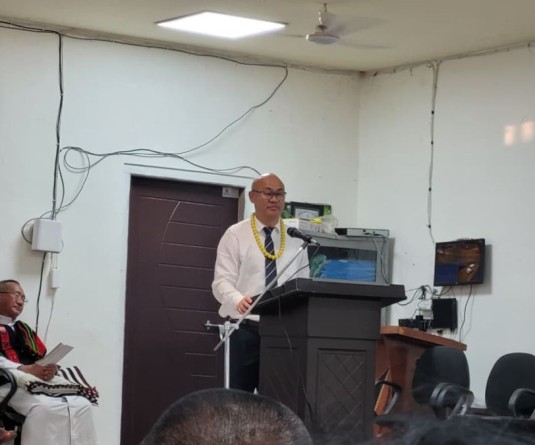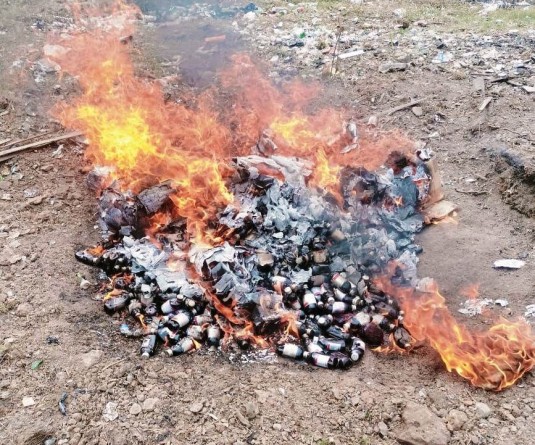
Dimapur, October 7 (MExN): A number of tribal organizations have questioned the Nagaland Government on a number of underlying issues pertinent to land ownership, resources and holding that compelled the state to call for the October 8 ‘consultative meeting.’
The government of Nagaland is to have a public discussion on the issue of ownership and transfer of land and its resources in respect of minerals including petroleum and natural gas resolution, in Nagaland under aegis of the Article 371 of the Constitution of India.
A joint statement was received here today from the Kyong Hoho, Zeliang Public Organization, Rengma Hoho, Pochury Public Forum, Chakro Public Organization, Sumi Hoho and Ao Senden. The statement raised a number of concerns which the organizations said, must be addressed to fully appreciate and understand the context in which the consultation is being called.
The organizations said the “aforementioned resolution” has already been passed in the Nagaland Legislative Assembly. For the reason, the organizations said, the discussion on the issue of ‘fixation’ of land compensation rates or royalty or land acquisition is pre-conditioned by the passing of the resolution in the assembly.
The tribal organizations quoted the resolution: “The ownership of land and its resources lies with the Naga people and therefore, the state of Nagaland representing the people shall have the jurisdiction in regulation and development over minerals including petroleum and natural gas etc in terms of usage and shall have the control on the matter of exploration and development in the state, which will include acquisition of mineral bearing areas, fixation of land compensation rates, landowner’s share in the benefits or royalty arising out of extraction of the minerals.” This text is problematic and misleading on several accounts, the statement said.
”The land and its resources certainly belong to the Naga people. Which is to say that the state do not own or control the resources even though the state represents the people. Representation and owning have completely different meanings and do not imply the same either,” the ‘hohos’ said. “Any discussion of compensation will first have to have the component of free, prior and informed consent of the people. This cannot happen at just one exclusive meeting of selected representatives only.”
The ‘hohos’ said lands among the Nagas have always belonged to the people and unless the community or the village decides over the use of their land for whatsoever purpose, it is not possible to discuss the issue of fixation of compensation rates.
“It is a clear attempt by the state to disown the people over the ownership of their land and to appropriate their resources for the benefit of the few. It is even outrageous to think that the acquisition of mineral bearing areas is to be controlled by the state government according to the resolution,” the statement said.
Further, the ‘hohos’ said the special provision in the Constitution of India pertaining to Nagaland was given to protect the rights of the people over its land natural resources and “not necessarily to give the right to the legislative assembly to have control over decision on the pertinent issues of development over the minerals.”
“The issue of royalty is a pre-condition to the people having control over their land and natural resources, since it is an issue of limiting the villagers to this option only. People may want to go for the issue of equity shares in the company rather than share a little percentage of the royalty with the state of Nagaland as has happened in many cases in the past over the exploitation of land and its natural resources in Nagaland,” the statement said.
The Nagaland government is advised that if at all the state wants to have a meaningful and effective broad-based consultations the process must begin from the grass-root level instead of a “top-down approach, which will amount to undermining the rights of the people.”
The organizations have advised all Nagas to seriously consider the implications of the Resolution on the Nagaland Ownership and Transfer of Land and its Resources in respect of Minerals Including Petroleum and Natural Gas, 2010 with the objective of securing a sustainable future of the Nagas. “Lest we be judged as a generation who has mortgaged the future of the Nagas,” the statement added.






